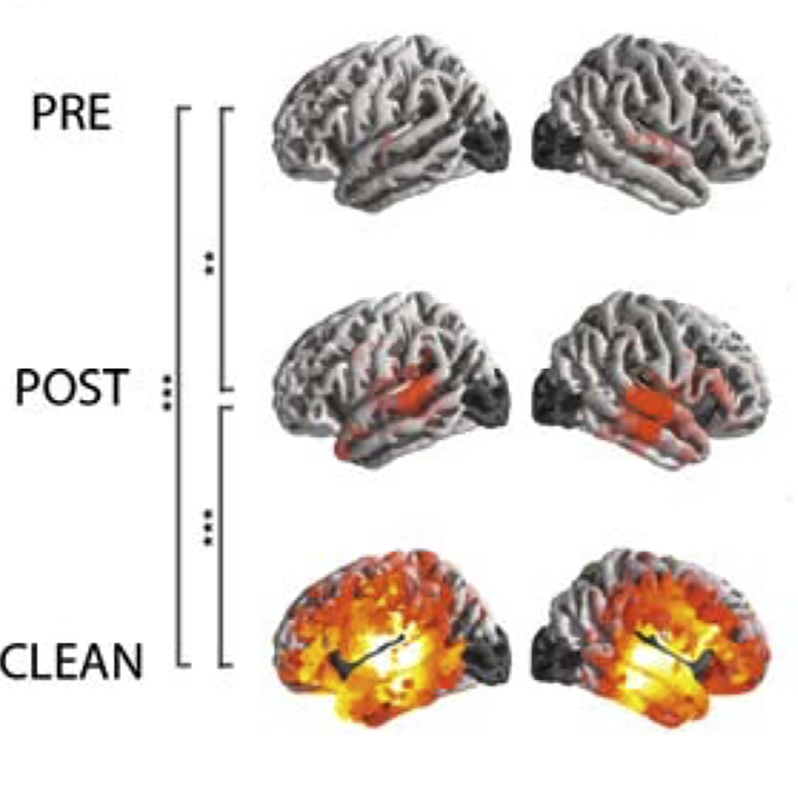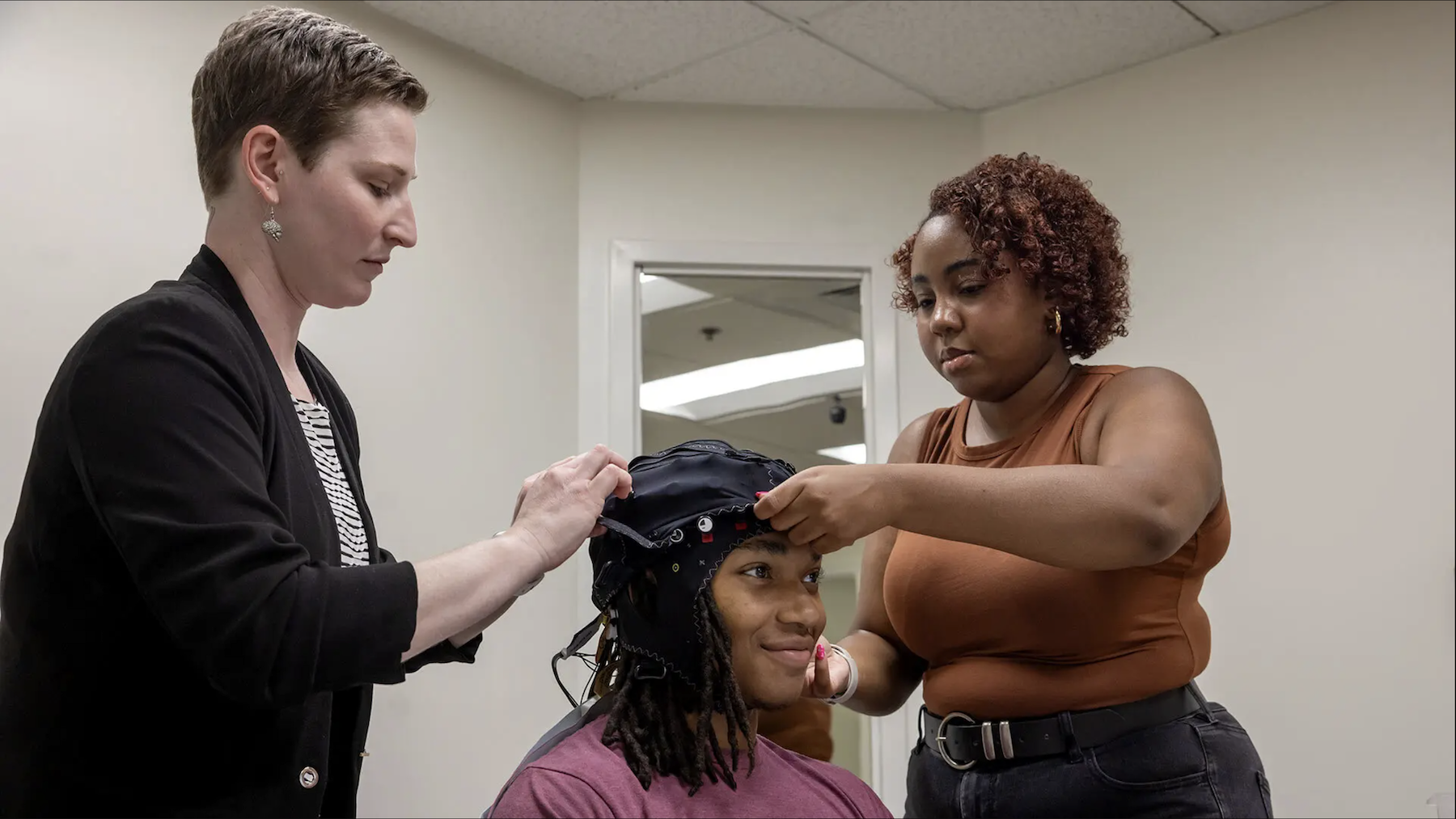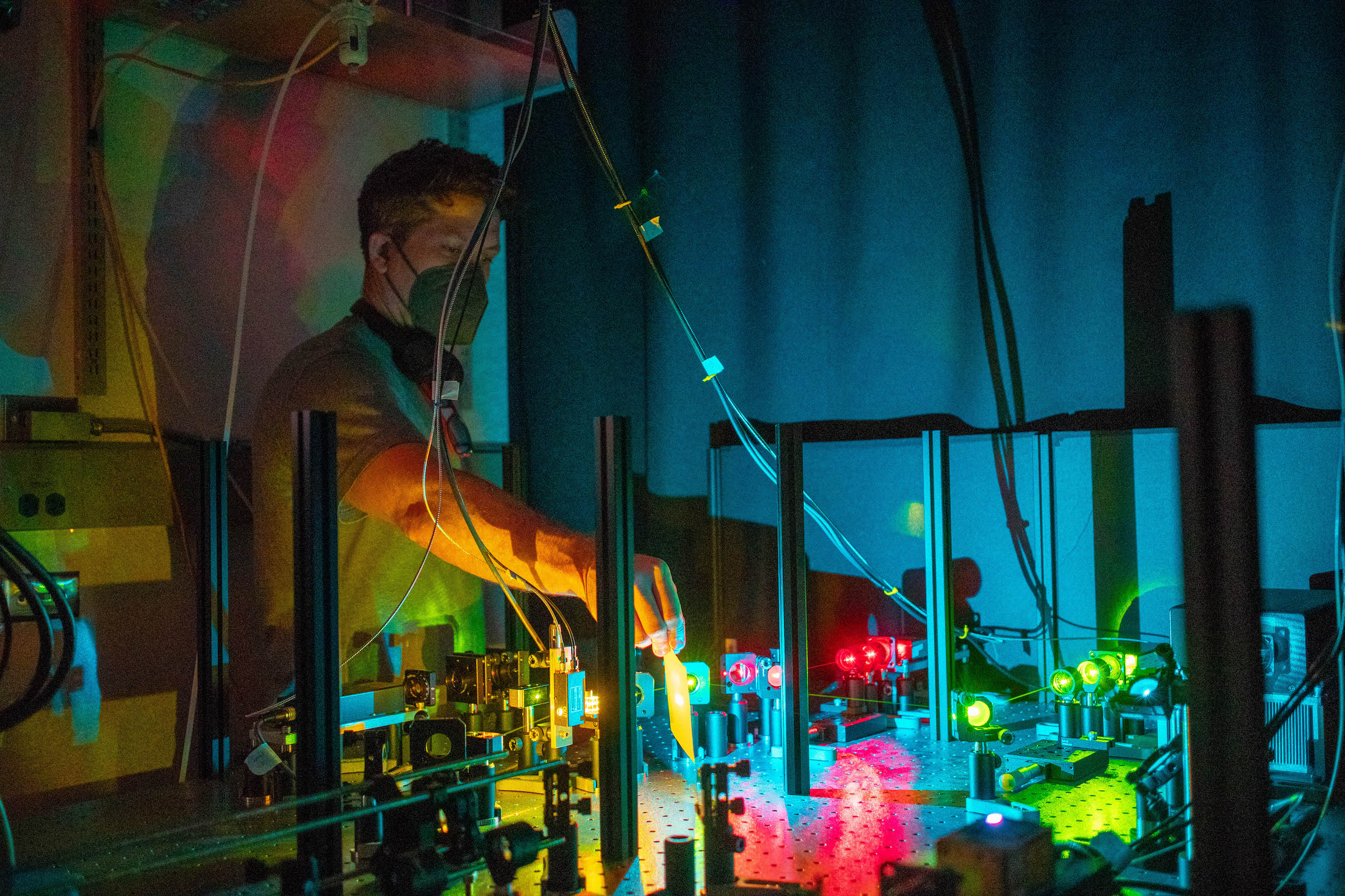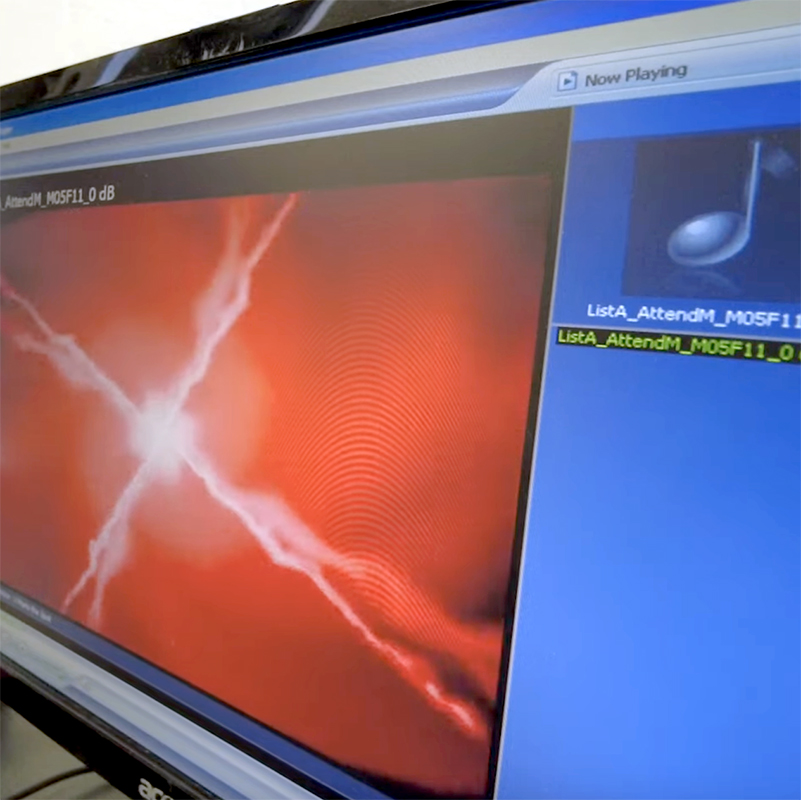News Story
BBI Advanced Genomic Technologies Core Launches
Dan Gheba, Executive Sequencing Specialist at Illumina, discusses the BBI-AGTC’s cutting edge sequencing technologies and bioinformatics capabilities on Wednesday, April 21, 2021.
The Brain and Behavior Institute’s Advanced Genomic Technologies Core (BBI-AGTC) is open and ready to advance your research with cutting-edge single-cell sequencing capabilities. The BBI-AGTC features automation of most workflows, which allows for high throughput and rapid turnaround of results in addition to cost savings.
Genomics applications are becoming increasingly important for rare cell detection and the comprehensive classification of biological systems, with applications of these technologies including the identification of new cell types in the human immune response, the study of cell differentiation and the classification of cancers and their effects, among others.
In advance of its launch today (Monday, April 26, 2021), the BBI-AGTC hosted Dan Gheba, the Executive Sequencing Specialist at Illumina, to outline the core’s sequencing and bioinformatics capabilities using the DRAGEN accelerated analysis pipelines.
At the event, Najib El-Sayed, the director of the BBI-AGTC and a professor of cell biology and molecular genetics with a joint appointment in the University of Maryland Institute for Advanced Computer Studies, announced a mini-grant competition for UMD community. The competition is possible thanks to a generous donation of reagents from Illumina and 10X Genomics. A request for proposal is forthcoming in the next couple weeks.
The BBI-AGTC offers free consultation to help define your project, which you can request at https://go.umd.edu/bbi-agtc. All other inquiries, including about pricing, should be submitted through the same form. A comprehensive core website is expected in the next few weeks as the BBI updates its own site.
Below are descriptions about some of the exciting capabilities of the BBI-AGTC’s equipment:
- Illumina NextSeq 1000: One of the latest NextGen sequencing platforms, the Illumina NextSeq1000 supports a broad range of methods such as small whole-genome sequencing, transcriptome sequencing, single-cell profiling, exome sequencing, shotgun metagenomic sequencing, target enrichment, and more.
- The 10X Genomics Chromium Controller is a state-of-the-art platform that uses advanced microfluidics to perform single-cell partitioning and barcoding in a matter of minutes.
- Eppendorf epMotion 5075tc: A robotic liquid handling workstation, the Eppendorf epMotion 5075tc will significantly increase throughput and reproducibility of results for Next Generation Sequencing sample and library preparation.
- The Agilent TapeStation 4150 offers automated electrophoresis platform for the sizing, quantification and quality control of DNA and RNA for up to 16 samples per run.
- A real-time PCR instrument, the Roche LightCycler 96 enables absolute and relative quantification of nucleic acids, melting curve analysis, and endpoint genotyping.
###
Media Relations Contact: Nathaniel Underland, underlan@umd.edu
About the Brain and Behavior Institute (BBI): The mission of the BBI is to maximize existing strengths in neuroscience research, education, and training at the University of Maryland and to elevate campus neuroscience through innovative, multidisciplinary approaches that expand our research portfolio, develop novel tools and approaches, and advance the translation of basic science. A centralized community of neuroscientists, engineers, computer scientists, mathematicians, physical scientists, cognitive scientists, and humanities scholars, the BBI looks to solve some of the most pressing problems related to nervous system function and disease.
Published April 26, 2021














